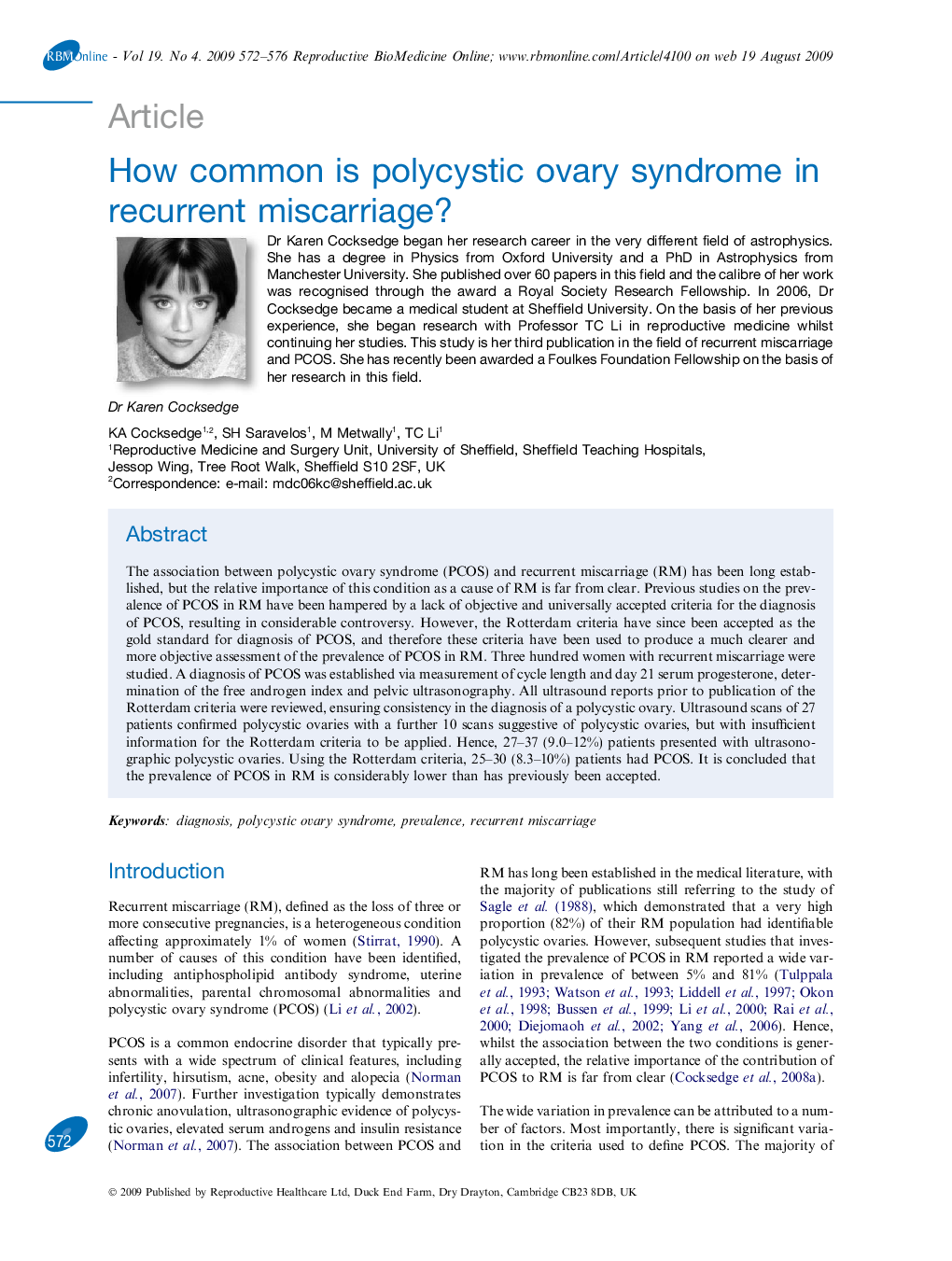| Article ID | Journal | Published Year | Pages | File Type |
|---|---|---|---|---|
| 3972183 | Reproductive BioMedicine Online | 2009 | 5 Pages |
The association between polycystic ovary syndrome (PCOS) and recurrent miscarriage (RM) has been long established, but the relative importance of this condition as a cause of RM is far from clear. Previous studies on the prevalence of PCOS in RM have been hampered by a lack of objective and universally accepted criteria for the diagnosis of PCOS, resulting in considerable controversy. However, the Rotterdam criteria have since been accepted as the gold standard for diagnosis of PCOS, and therefore these criteria have been used to produce a much clearer and more objective assessment of the prevalence of PCOS in RM. Three hundred women with recurrent miscarriage were studied. A diagnosis of PCOS was established via measurement of cycle length and day 21 serum progesterone, determination of the free androgen index and pelvic ultrasonography. All ultrasound reports prior to publication of the Rotterdam criteria were reviewed, ensuring consistency in the diagnosis of a polycystic ovary. Ultrasound scans of 27 patients confirmed polycystic ovaries with a further 10 scans suggestive of polycystic ovaries, but with insufficient information for the Rotterdam criteria to be applied. Hence, 27–37 (9.0–12%) patients presented with ultrasonographic polycystic ovaries. Using the Rotterdam criteria, 25–30 (8.3–10%) patients had PCOS. It is concluded that the prevalence of PCOS in RM is considerably lower than has previously been accepted.
